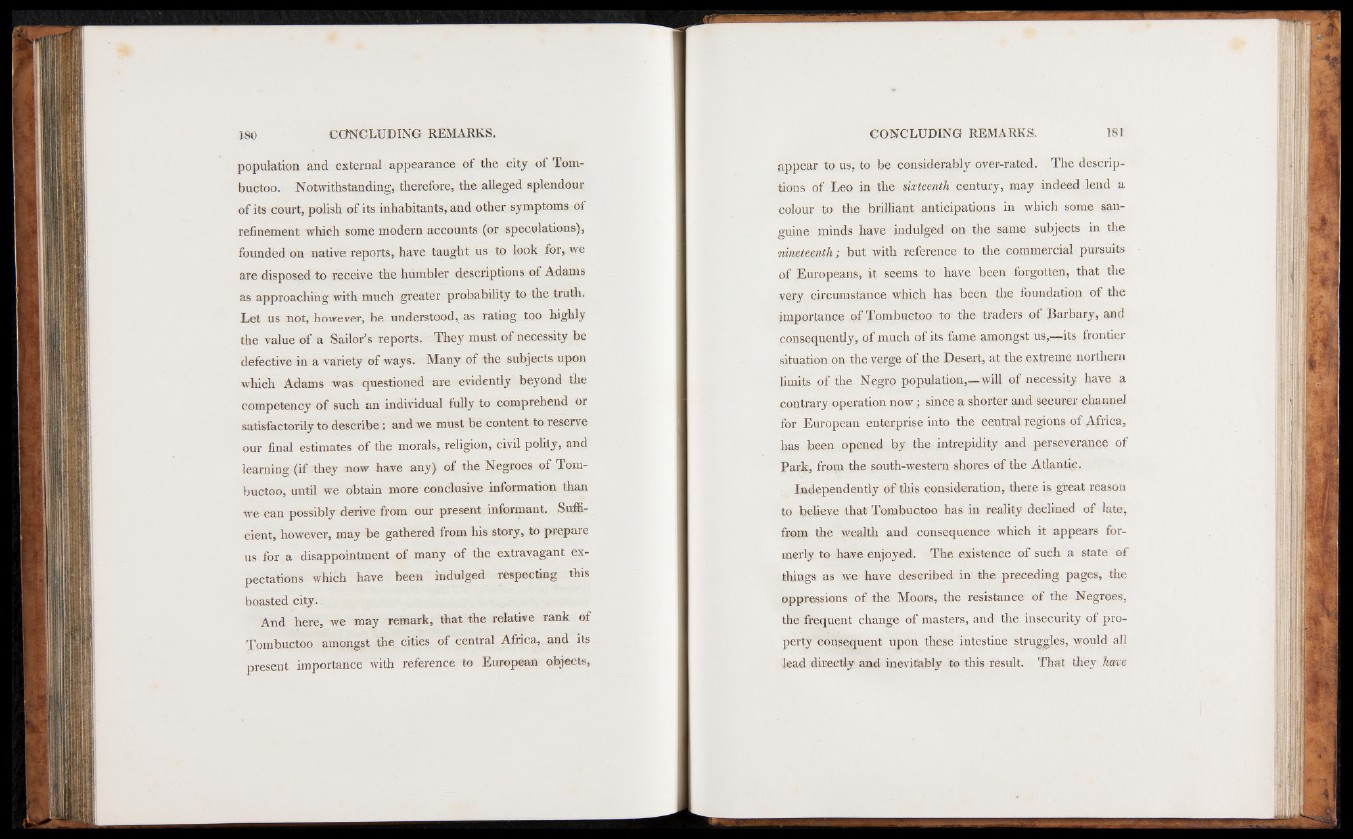
population and external appearance of the city of Tom-
buctoo. Notwithstanding, therefore, the alleged splendour
of its court, polish of its inhabitants, and other symptoms of
refinement which some modern accounts (or speculations),
founded on native reports, have taught us to look for, we
are disposed to receive the humbler descriptions of Adams
as approaching with much greater probability to the truth.
Let us not, however, he understood, as rating too highly
the value of a Sailor’s reports. They must of necessity be
defective in a variety of ways. Many of the subjects upon
which Adams was questioned are evidently beyond the
competency of such an individual fully to comprehend 01
satisfactorily to describe ; and we must be content to reserve
our final estimates of the morals, religion, civil polity, and
learning (if they now have any) of the Negroes of Tom-
buctoo, until we obtain more conclusive information than
we can possibly derive from our present informant. Sufficient,
however, may be gathered from his story, to prepare
us for a disappointment of many of the extravagant expectations
which have been indulged respecting this
boasted city.
And here, we may remark, that the relative rank of
Tombuctoo amongst the cities of central Africa, and its
present importance with reference to European objects,
appear to us, to be considerably over-rated. The descriptions
of Leo in the sixteenth century, may indeed lend a
colour to the brilliant anticipations in which some sanguine
minds have indulged on the same subjects in the
nineteenth; but with reference to the commercial pursuits
of Europeans, it seems to have been forgotten, that the
very circumstance which has been the foundation of the
importance of Tombuctoo to the traders of Barbary, and
consequently, of much of its fame amongst us,—its frontier
situation on the verge of the Desert, at the extreme northern
limits of the Negro population,—will of necessity have a
contrary operation now ; since a shorter and securer channel
for European enterprise into the central regions of Africa,
has been opened by the intrepidity and perseverance of
Park, from the south-western shores of the Atlantic.
Independently of this consideration, there is great reason
to believe that Tombuctoo has in reality declined of late,
from the wealth and consequence which it appears formerly
to have enjoyed. The existence of such a state of
things as we have described in the preceding pages, the
oppressions of the Moors, the resistance of the Negroes,
the frequent change of masters, and the insecurity of property
consequent upon these intestine struggles, would all
lead directly and inevitably to this result. That they have